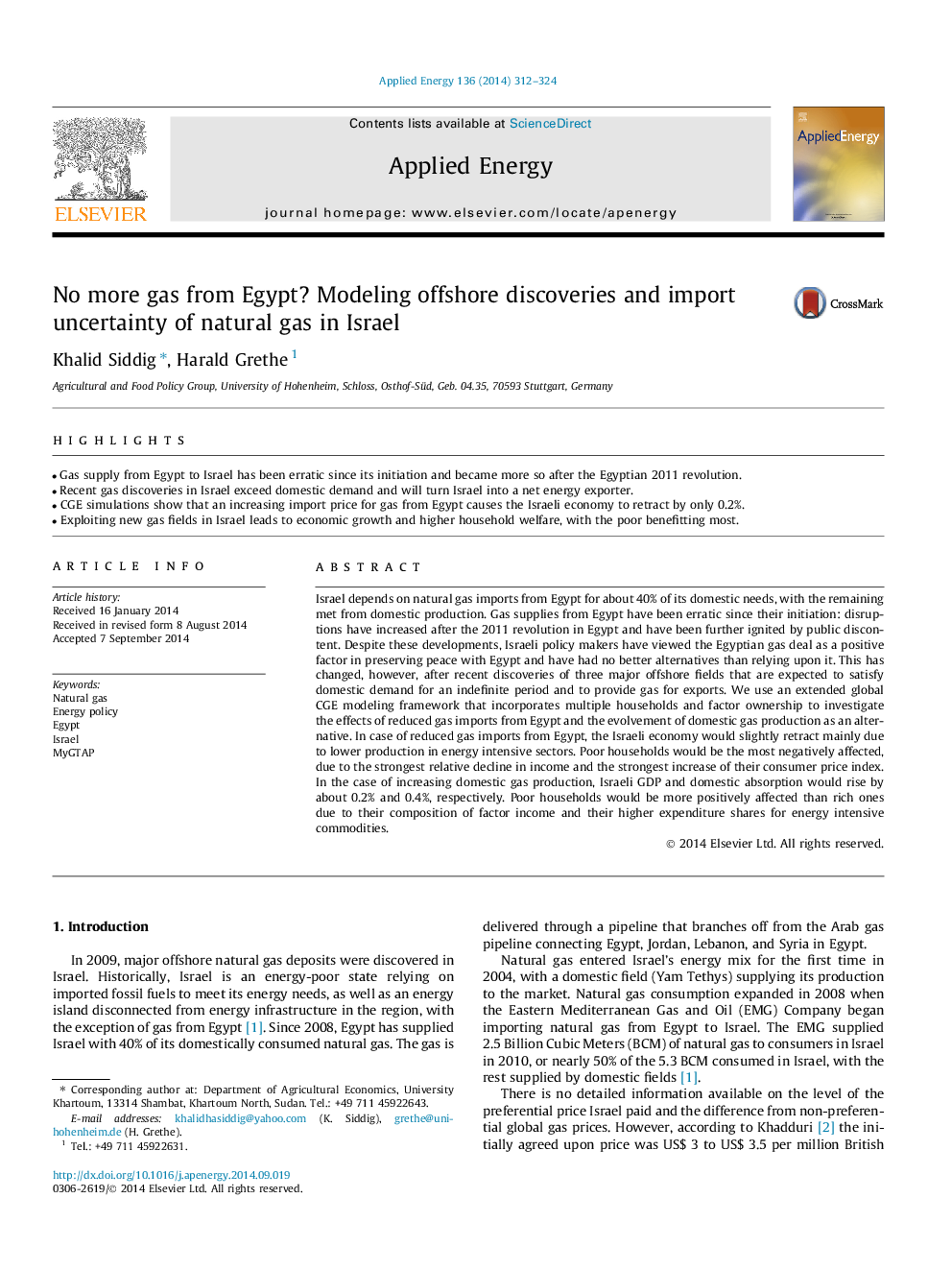| Article ID | Journal | Published Year | Pages | File Type |
|---|---|---|---|---|
| 6688724 | Applied Energy | 2014 | 13 Pages |
Abstract
Israel depends on natural gas imports from Egypt for about 40% of its domestic needs, with the remaining met from domestic production. Gas supplies from Egypt have been erratic since their initiation: disruptions have increased after the 2011 revolution in Egypt and have been further ignited by public discontent. Despite these developments, Israeli policy makers have viewed the Egyptian gas deal as a positive factor in preserving peace with Egypt and have had no better alternatives than relying upon it. This has changed, however, after recent discoveries of three major offshore fields that are expected to satisfy domestic demand for an indefinite period and to provide gas for exports. We use an extended global CGE modeling framework that incorporates multiple households and factor ownership to investigate the effects of reduced gas imports from Egypt and the evolvement of domestic gas production as an alternative. In case of reduced gas imports from Egypt, the Israeli economy would slightly retract mainly due to lower production in energy intensive sectors. Poor households would be the most negatively affected, due to the strongest relative decline in income and the strongest increase of their consumer price index. In the case of increasing domestic gas production, Israeli GDP and domestic absorption would rise by about 0.2% and 0.4%, respectively. Poor households would be more positively affected than rich ones due to their composition of factor income and their higher expenditure shares for energy intensive commodities.
Keywords
Related Topics
Physical Sciences and Engineering
Energy
Energy Engineering and Power Technology
Authors
Khalid Siddig, Harald Grethe,
